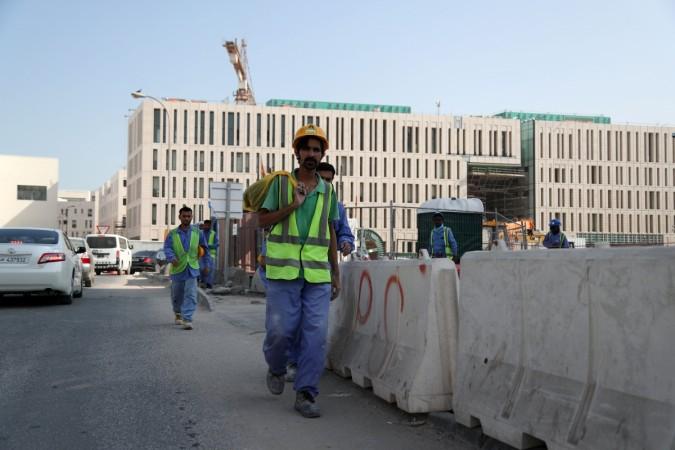
The fact that Indian workers in the Gulf nations work under extremely tough and sometime inhumane conditions is not new. But latest figures suggest that nearly 10 workers from India died every day in Gulf countries in the last six years.
The detail came to light after Venkatesh Nayak from Commonwealth Human Rights Initiative filed an RTI application with the External Affairs Ministry seeking to know the number of Indian workers who had died in Bahrain, Oman, Qatar, Kuwait, Saudi Arabia and the United Arab Emirates between January 1, 2012 and mid-2018.
While Indian missions in Oman, Qatar and Bahrain provided the details, the embassy in UAE refused to divulge the figures. The Indian embassy in Kuwait is said to have given out the data from their website, which had details only from the year 2014.
In order to calculate these missing details, Nayak said that he referred to the figures discussed in Parliamentary questions in Lok Sabha and Rajya Sabha.
"Available data indicates, at least 24,570 Indian Workers died in the six Gulf countries between 2012 and mid-2018. This number could increase if the complete figures for Kuwait and UAE are made available publicly. This amounts to more than 10 deaths per day during this period," the Press Trust of India quoted him as saying.
Nayak also explained that Indians made up for over 50 percent of the remittance that the country received from nations worldwide between 2012 and 2017.
"While India received a total of $410.33 billion in remittances from the world over, remittances from the Gulf countries accounted for $209.07 billion," he added.
Plight of migrant workers in Gulf
It is often said 'All that glitters is not gold' and this has never been truer. Expatriate workers in the shimmering capitals of the oil-rich Gulf emirates would vouch for this truism. While a lot of expats may be living a lavish life abroad and enjoying their personal and professional lives, we often hear horror stories from the ugly underbelly -- ill-treated workers, enslaved maids and life-consuming debt traps.
We often hear stories of expat workers landing blue-collar or low-paying jobs in poor working and living conditions. Their passports are often taken away by the agents who take them to the Gulf countries and they tend to get stranded there and are unable to return home.

There are a number of incidents that have come up in which the workers' contracts have loopholes, due to which they often get tied down to their employers and companies under whom they suffer.
For instance, Qatar has on more than one occasion been pulled up for its treatment of migrant workers, especially the ones readying venues for the FIFA World Cup 2022.
Amnesty International had earlier said that migrant workers readying the infrastructure for the 2022 World Cup have been facing "appalling treatment" for a while now.
The NGO for human rights had spoken to 132 contract workers readying the Khalifa International Stadium in Doha and 102 landscapers working at the Aspire Zone sports complex and they said that they have faced human right abuses of some form or the other, reported the Guardian. These abuses ranged from being forced to live in dingy and seedy homes to working in extremely high temperatures.
"My life here is like a prison. The work is difficult, we worked for many hours in the hot sun," one of the workers had said.
One of the cases that made news in India, Bengaluru in particular, about the horrors of the Middle East was the story of Ranjitha, who went to Saudi Arabia to work as a domestic help in March 2017. While it looked like a good move for the family, Ranjitha experienced such situations that will stay with her for the rest of her life.
A few days after she reached Saudi Arabia, Ranjitha called her husband Bhaskaran to talk about an ordeal that is sure to send a chill down the spine. "She told me that she was being treated badly, and forced to work without respite and given very little food," Bhaskaran told Bangalore Mirror. She was also not allowed to leave the house and was beaten up regularly.
"Ranjitha also told me that the living conditions were inhuman, and she was constantly being reminded that she was purchased for 3 lakh. I was shocked!" he added.
While Ranjita had to work in a new house every week without food or money, she returned to India two months later and spoke to the daily about her nightmarish experience and the plight of other Indian expats in the Gulf.
"There are many other Indian women, who need help right now or they would die," she said. "They have been beaten and god knows how many other Indians were there; I was kept inside a hall, which had 30 of us. There are many women stuck there without money. If nothing is done, they will be in huge trouble."

















